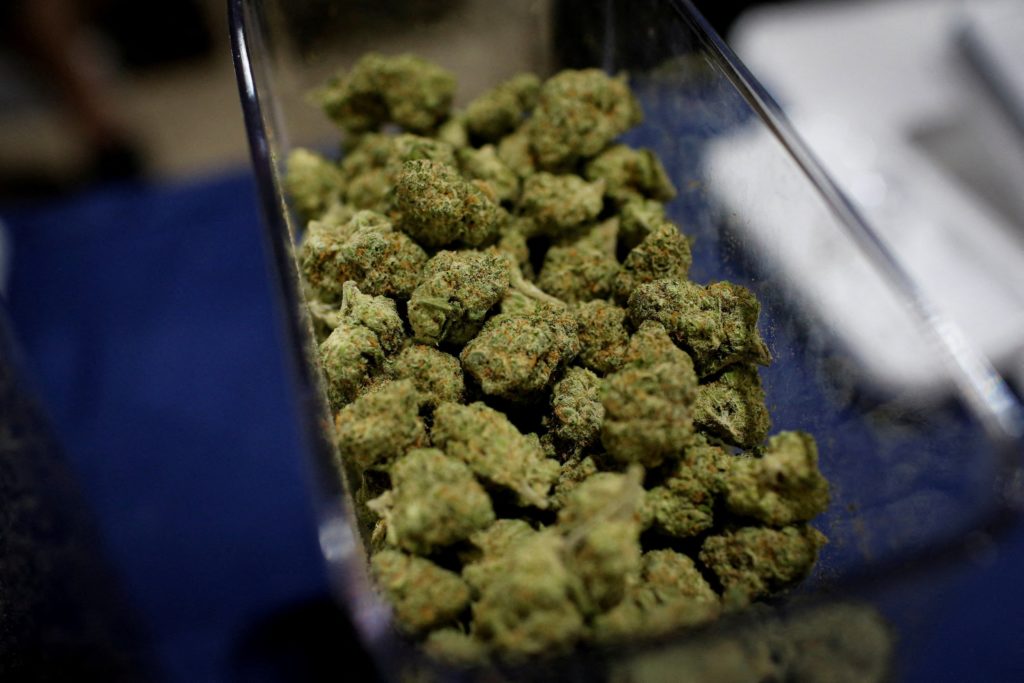As more U.S. states legalize recreational marijuana, a new study reveals strong links between cannabis addiction and schizophrenia in young males — a risk the Catholic Church must address, said Dr. Timothy Millea, chair of the health care policy committee for the Catholic Medical Association.
"There is this increasing amount of evidence that we’ve got a tiger by the tail, and we are not winning this," he told OSV News.
Researchers from the Copenhagen Research Center for Mental Health and the U.S. National Institute on Drug Abuse found that between 15% to 30% of cases of schizophrenia in males aged 16-49 could be attributable to cannabis use disorder. Among females, the rate was 4%.
The study — titled "Association between cannabis use disorder and schizophrenia stronger in young males than in females" and published May 4 by Cambridge University Press — assessed more than 6.9 million individuals across Denmark during the years 1972 to 2021, using data from Denmark's national medical registers.
The findings stressed the urgent need to reevaluate the mainstreaming of marijuana in the U.S, where — as a 2021 Surgeon General advisory noted — mental health issues among youth and young adults are at a record high, said Millea.
"It's a little hard to dismiss this study when you're talking about 6.9 million people," he said.
Among the study's conclusions is that "at a population level, assuming causality, one-fifth of cases of schizophrenia among young males might be prevented by averting" cannabis use disorder.
To date, recreational marijuana has been legalized in 23 states and Washington, D.C., with that city and 37 states also permitting marijuana for medical purposes.
But in Colorado, where recreational marijuana has legally been sold since 2014, mental health issues associated with cannabis use have worsened significantly, said Dr. Libby Stuyt, an addictions psychiatrist with Solvista Health in that state and a board member of the International Academy on the Science and Impact of Cannabis.
"We've been seeing some pretty horrible stuff," said Stuyt, who previously spent 20 years as a medical director for a Colorado state in-patient addiction treatment center. "I saw cognitive and psychotic symptoms worse than those I've seen with methamphetamines."
Some cases have even required "up to three antipsychotic doses" to treat, she said.
The spike is directly related to the staggering increase in the potency of THC (tetrahydrocannabinol), the psychoactive component in marijuana, said Stuyt — spikes that she and Millea said are not accounted for in marijuana legalization efforts.
In a 2018 medical paper, Stuyt observed that prior to the 1990s in Colorado, THC content was less than 2% in cannabis products found in dispensaries. Between 1995 and 2015, levels rose 212%, reaching 17-28% in the most popular strains found in Colorado dispensaries.
Concentrated THC products such as oil, hardened extracts and edibles can contain levels as high as 95%, said Stuyt.
While FDA-approved Marinol capsules — a synthetic cannabinoid prescribed for AIDS-related anorexia as well as chemotherapy-related nausea and vomiting — is recommended in doses of 20 milligrams, "an 18-year-old in Colorado with a medical card can buy two grams of 80% THC per day," said Stuyt. "That is (the equivalent of) 1600 milligrams of THC, 1200s times more than the FDA's approved pure THC. That's crazy."
Increased potency signals "an increase in addiction potential," she added.
"In 1990, we used to think that marijuana wasn't addicting. It was hallucinogenic, but there was no withdrawal," she said. "But now with high potency, there is a really marked withdrawal, which is contributing to a lot of violence associated with marijuana — irritability, anger, anxiety, an inability to sleep and a massive craving for more marijuana. People really have a hard time quitting."
Stuyt has treated patients who have reverted to regular cannabis use even after stabilization from psychosis, only to develop schizophrenia — "a lifelong disorder for which there is no cure, only treatment of symptoms," she said.
Further compounding the risks is the fact that the human brain does not fully develop until the mid-to-late 20s, said psychologist James Black, director of youth services for the Archdiocese of Philadelphia's Catholic Social Services.
"The good development of the frontal lobe in particular is so important for judgment and decision-making," Black told OSV News. "When you have brains that are vulnerable and not fully developed, and you're introducing substances that alter perceptions, judgment and decision-making, it makes it even harder for people at a stage during which these things are already difficult. You have kids that are in a constant state of intoxication, and they don't know which end is up."
"Who's going to wake up first and admit that we really got out over our skis on this, and that we're not looking out for public health?" asked Millea.
The Catholic Church must "take the lead and get information out" about the dangers of marijuana, he said, "bringing this (issue) to light and turning the situation around."
"St. Irenaeus said that the glory of God is man fully alive," Millea said. "If you're dulling those senses, you're pursuing escapism instead of reality ... Drugs are used because they fill the gap God is intended to fill. But until we fill that gap with him, we will not be happy."

